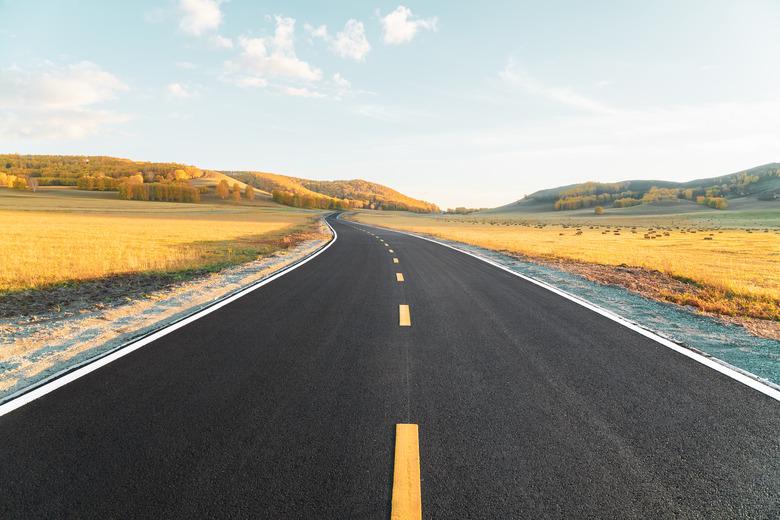What Is The Difference Between Blacktop & Asphalt?
It's not the ingredients; it's the mix. The materials that go into blacktop and asphalt to make them durable and maintainable are exactly the same. However, the way that they come together makes two slightly different products. A blacktop road and a gray asphalt driveway may look alike and certainly perform the same function when driving over the materials, but they aren't the same.
How Asphalt Is Made
Asphalt has two main ingredients: crushed stone and bitumen. The bits of crushed stone are held together by the bitumen, which is a viscous black material made from petroleum distillation. It is a crude oil byproduct. You can also find bitumen in flexible asphalt tiles most commonly used for roof shingles.
Asphalt comes from the heaviest part of petroleum after most fossil fuels have been refined out. It is then given a cutting agent such as crushed stone to get the correct consistency.
It is mixed in a drum to keep it at the correct temperature and is malleable enough to pour onto pathways, driveways, roadways and any other ways that a creative builder can imagine. Asphalt is mixed at about 250 degrees minimum to make it strong enough to endure all that will drive, run and walk over its surface.
Uses for Asphalt
Aside from major roadways that snake through the cities and byways of the world, asphalt's flexible and water-resistant qualities make it ideal for:
- Cable coatings
- Tile underlying waterproofing
- Soundproofing
- Damp proofing
- Airport runways
- Building water proofing
- Reservoir and pool linings
How Blacktop Is Made
While blacktop is nearly identical to asphalt, it is made differently. The crushed stone and bitumen are a different ratio.
You'll notice that in a blacktop road, the surface sparkles more than a thick layer of asphalt. That's because there is a higher percentage of natural stone crushed into the mix.
Blacktop is heated to a higher temperature of around 300 degrees, about 50 degrees more than asphalt. A blacktop road lasts longer than concrete, as it can bend and be resealed season after harsh weather season.
Uses for Blacktop
Residential roads, playgrounds, driveways, parking lots and pathways are usually made of blacktop. They don't have a high traffic and weight load compared to major roadways that use asphalt.
Blacktop is typically used for game areas such as outdoor basketball courts, driveways and the roads that wind through a neighborhood.
Facts About Asphalt and Blacktop
Since asphalt and blacktop need to stay hot, large jobs are often completed in the warmer months of the year.
Asphalt tends to be smoother than blacktop. This cuts down on noise from tires and traction on the road. Since it has less crushed stone in its tarry mix, asphalt on roadways makes for a smoother ride. It cuts down on wear and tear on tires and cars.
Asphalt vs. Concrete
Concrete makes a nice, clean, wide swath of durable surface for cars, sports courts and other everyday uses. However, it is quite different than asphalt. It has many more drawbacks compared to both asphalt and blacktop surfaces.
After being poured, asphalt can be used by big rigs and commuters within two days. A concrete surface will take up to twice as long to create and cure. Asphalt is easier to maintain and reseal if it cracks, and it rides out harsh weather conditions.
Blacktop and asphalt are both preferred in the winter for their heat-retaining qualities. Snow and ice melt swiftly, so the surface can be safely used quicker than concrete.
Asphalt and Blacktop Tarmacs
Both asphalt and blacktop can be called a tarmac. A tarmac is the material used for creating roads, runways and other high-traffic areas. Typically, people consider a tarmac to be an airport runway. While asphalt and blacktop are usually the terms used when referring to highways and streets, it is also used for airport runways.
